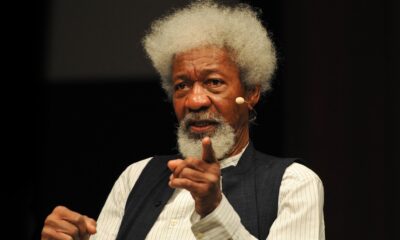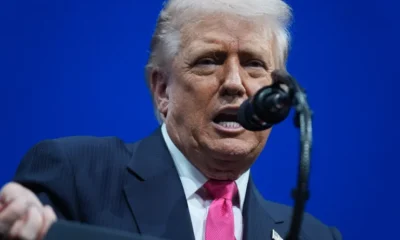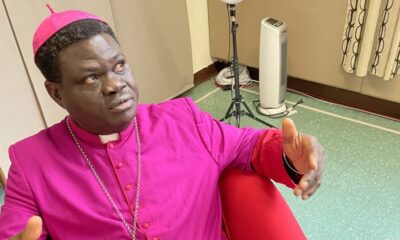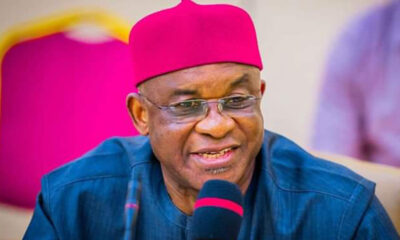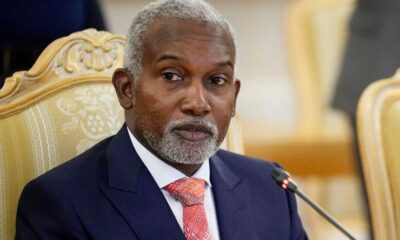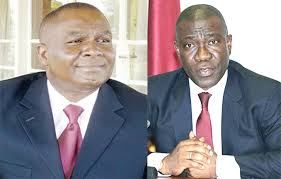Breaking News
Trump’s Remarks Distort Nigeria’s Crisis, Deepen Divisions – Soyinka
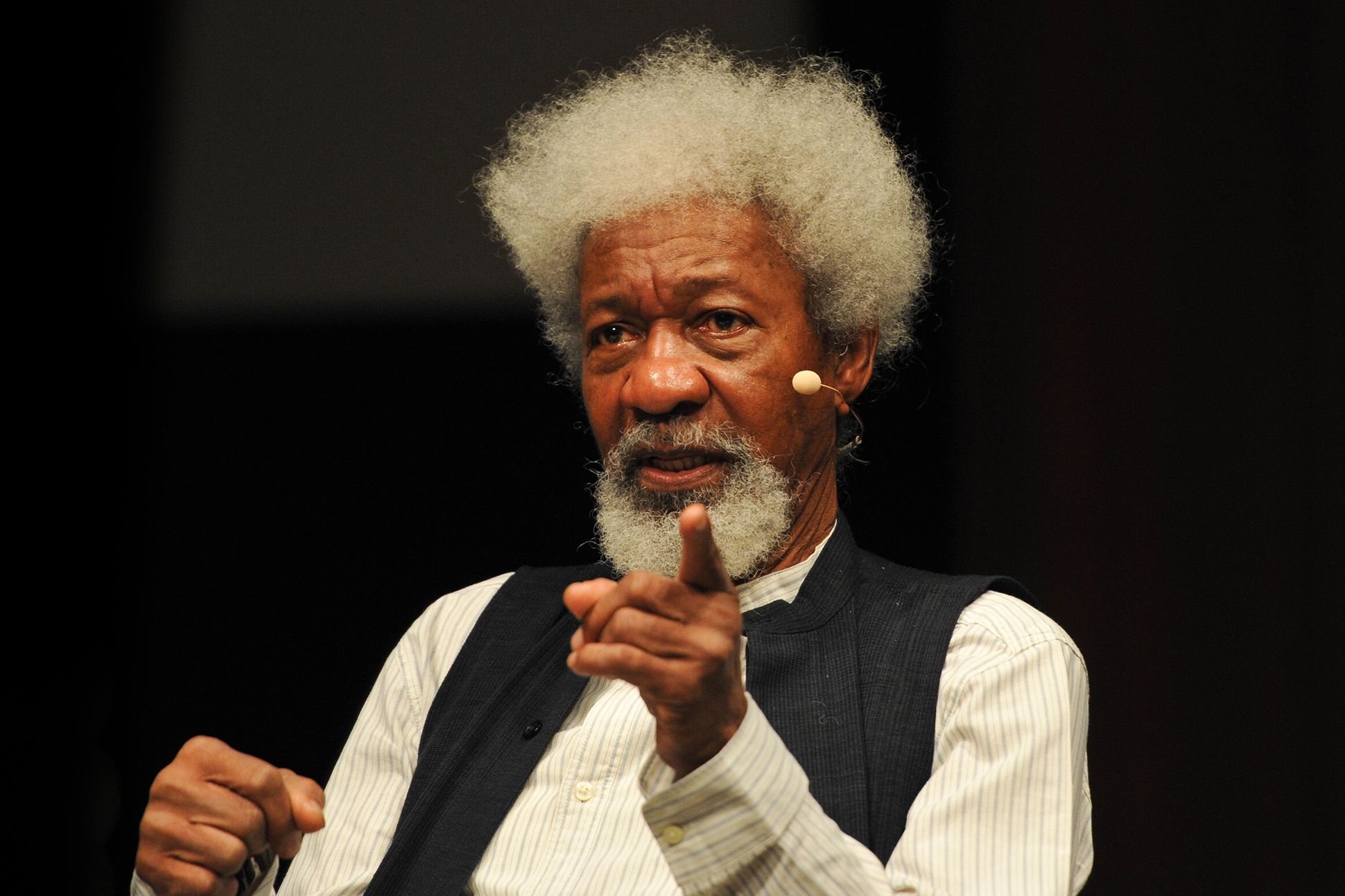
Nobel laureate Prof. Wole Soyinka has criticised the recent remarks by United States President Donald Trump, who classified Nigeria as a “Country of Particular Concern” and threatened possible military action over alleged persecution of Christians.
Speaking in an interview with Democracy Now, Soyinka warned that Trump’s sweeping claims distort the true nature of Nigeria’s security crisis and risk deepening religious divisions.
According to him, Nigeria’s turmoil is not a Christian-versus-Muslim confrontation but a long-running battle against extremist groups that have weaponised religion to pursue political and economic interests.
“We must separate Nigeria’s long-standing internal problems from President Trump’s recent response,” Soyinka said.
“The Christian–Islam, or Islam-versus-the-rest dichotomy has existed for decades. It became truly horrendous when politics got mixed up with religious differences.”
‘Extremists, not Muslims, are responsible for the killings’
Soyinka blamed successive governments for failing to confront religious extremism firmly and for allowing impunity to thrive.
He cited the brutal lynching of a female student accused of blasphemy, pointing out that the perpetrators, despite being caught on video, walked free.
“When perpetrators of such horrors go free, it strengthens the perception that a brutal war is going on between Christians and Muslims. In truth, we are dealing with extremists, political Islamists, sometimes known as ISWAP or Boko Haram, not with Muslims as a people,” he said.
He added that extremist groups have forged alliances with global terror networks and accessed sophisticated weapons that sometimes overwhelm the Nigerian military.
“When we have sweeping statements like Trump’s, it doesn’t make things easier. It expands regions of hostility and makes peaceful resolution even more difficult,” he warned.
Soyinka speaks on revoked U.S. visa
Responding to reports that his U.S. visa had been revoked, the Nobel laureate said the action was tied to his criticism of the Trump administration.
“I have a feeling that I haven’t been flattering Donald Trump, and I see no reason to do that,” he said, adding that Trump should feel “flattered” by his earlier comparison of him to former Ugandan dictator Idi Amin.
Govt Calls for Calm Over Diplomatic Tension
The Federal Government has urged Nigerians to remain calm as tensions rise over Trump’s comments.
Minister of Information, Mohammed Idris, speaking during a courtesy visit to Governor Umar Namadi of Jigawa State, said President Bola Tinubu has the capacity to safeguard the nation and maintain strong international partnerships.
In a statement by his media aide, Rabiu Ibrahim, the minister said: “As such, Nigerians should not panic; please remain calm. President Tinubu has the capacity to amicably resolve the matter.”
He was in Jigawa for the North West 2025 Youth Pally and a presentation of the President’s achievements after two years in office.
Northern Groups Reject Trump’s Narrative
The Coalition of Northern Groups (CNG) also rejected Trump’s CPC classification, describing it as misleading and capable of fuelling sectarian tension at a time Nigerians are struggling to overcome division.
National Coordinator Jamilu Charanchi said available data contradicts claims of religious genocide.
He said 9,662 people were killed in violent incidents across Nigeria in 2024, with 86 percent of the deaths recorded in the northern region: 41 percent in the Northwest, 25.9 percent in the Northeast and 19.3 percent in the Northcentral.
Charanchi insisted that both Christians and Muslims are victims.
“Let us be clear: there is no genocide against Christians in Nigeria. There is a national security crisis affecting all Nigerians, Muslims, Christians, and others alike,” he said.
Citing ACLED data from January 2020 to September 2025, he said more than 20,400 civilians were killed in violent attacks. Of those whose religious identity could be verified, 317 were Christians and 417 were Muslims.
He said those figures clearly show that Nigeria’s crisis is not a targeted extermination of one faith but a widespread violent insurgency affecting all communities.
Charanchi described the “Christian genocide” claim as a strategic geopolitical narrative designed to destabilise Nigeria and justify potential foreign intervention.
He warned that if Nigeria fails to manage its public image and fix its insecurity, the entire Sahel could face deeper instability.



